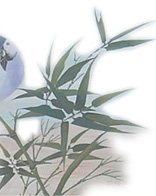|
|
|
 |
| |
|
|
|
[<<] [<] [>] [>>] |
| Title: Shirley's Art 665-Integrated Arts 061: Painting for Chinese Classical Poem:Fu de Gu Yuan Cao Songbie- Sent Off on the Ancient Plain- by Bai Juyi - Shirley's 38th Assignment in Chinese National Academy of Arts-Feb 13 - 16, 2012 |
| Artist: Shirley Zhang |
| Size: 49.00cm x 180.00( 19.29 inches x 70.86 inches) |
| Completed Time: Feb 20, 2012 |
Remarks:
 Listen to Shirley Singing the Poem in English & in Chinese Feb 18, 2012 Listen to Shirley Singing the Poem in English & in Chinese Feb 18, 2012
 Listen to Shirley Singing the Poem in Chinese & in English Feb 18, 2012 Listen to Shirley Singing the Poem in Chinese & in English Feb 18, 2012
  Listen to Shirley Explaining the Poem Listen to Shirley Explaining the Poem
  Follow Shirley to Read the Poem & Chinese Characters Follow Shirley to Read the Poem & Chinese Characters
 Learn the Meaning of the Poem Learn the Meaning of the Poem
 See Shirley Painted Picture for the Poem Feb 16, 2012 See Shirley Painted Picture for the Poem Feb 16, 2012
 See Shirley Painted Picture for the Poem Jan 30, 2010 See Shirley Painted Picture for the Poem Jan 30, 2010
This is my 61st Combined Paintingthat I have created / painted for Chinese Classical Poetry, and my 665th painting since 2003 ; also, it is my 38th assignment in Chinese National Academy of Arts.
This is the third time I painted a new painting to match the poem Fu de Gu Yuan Cao Songbie - Send Off on the Ancient Plain by the famous poet Bai Juyi in Tang Dynasty ( 618 - 907).
I completed it as my first assignment in the new term in my classroom in CNAA.
One of my tutors Mr. Wu Tong thought that I have made much progress on using Chinese brush and ink, the feeling is right and comfortable, however, I should not use the brush too dry.
According to the opinions of my tutors and for respecting them, I did not write my English translation on the painting and I did not sign my name in English. :-)
Anyway, I have done a draft for writing them after I go back home or I am abroad ... :-)
Below is the translation that I wished to write on my painting and to help my readers to understand the Chinese poem:
The Main Meaning of the Poem
Lush grass grows on the ancient plain,
Each year it withers & flourishes
Wildfire cannot burn it out,
It re-grows in the spring breeze.
Chinese Characters & Pronunciations :
You can clink any Chinese Character to open the New Character Board and to see its Chinese pinyin, meaning, pronunciation and follow me to read it, also, you can hit the links over to enter the Language Column, to see my comments about this poem
čµå¾å¤åčéå« ļ¼ ē¬¬äøéØå -- The first part of the peomļ¼
ē½å±
ę ( å )
ē¦»ē¦»åäøč,
äøå²äøęÆč£ć
éē«ē§äøå°½ļ¼
ę„é£å¹åēć
For helping my readers and friends who are interested in Chinese cultures and language learning, I created a piece of music to match this poem in 2006 and created another two paintings to match the poem in 2010.
Now, in 2012, my music tutor - Prof. Meng Weiye corrected my music writing, my English tutors - Mr. Mike, J, Mr. William G., Mr. Dennis H., and Mrs. Xiaogang Z. from Britain, America and China corrected my translations.
I do hope that our effort will be some help with you to know something more about Chinese culture.
How do you think of this painting, do you enjoy it?
If you have any questions, comments or suggestions, welcome to write to shirley@ebridge.cn or shirleyz004@yahoo.com ,you can also publish your opinions on Message Board . :-)
--Shirley Zhang
Feb 20, 2012
|
|
|
|
|
|
| |
| |
|


